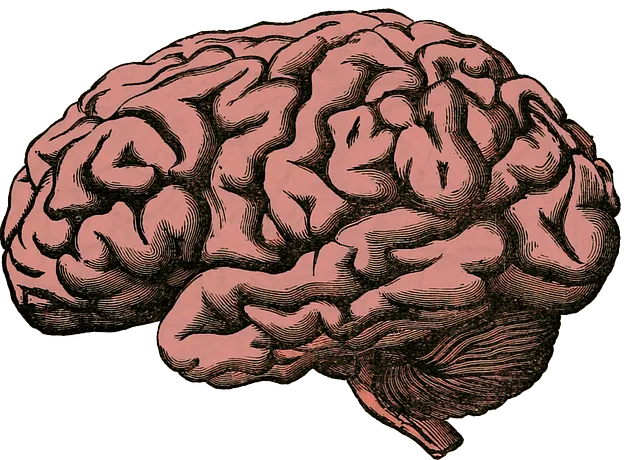Englewood Kaiser mental health programs utilize a comprehensive data collection process, encompassing patient records, surveys, community outreach, and socio-demographic factors, to inform effective treatment strategies. They focus on prevention, tailored interventions, and self-care routines for better depression management. Leveraging advanced analytics, machine learning algorithms, and continuous evaluation, these programs offer holistic care models with a strong emphasis on burnout prevention and cultural competency training for healthcare providers. Through data-driven insights, personalized interventions, and risk assessment tools, Englewood Kaiser enhances patient care, improves mental well-being, and contributes to future mental health research.
Mental health data analysis is a powerful tool in understanding complex patient needs. As healthcare systems strive for better outcomes, analyzing and interpreting mental health data becomes increasingly vital. This article explores key aspects of this process, starting with understanding and collecting diverse mental health data. We delve into the unique challenges of gathering such information, highlighting the successful strategies employed by Englewood Kaiser Mental Health Programs as a beacon of best practices. Advanced analytical techniques are then examined to uncover deeper insights, ultimately focusing on how data interpretation can enhance patient care and outcomes.
- Understanding Mental Health Data: Collection and Challenges
- Englewood Kaiser Mental Health Programs: An Overview
- Advanced Analytical Techniques for Deeper Insights
- Interpreting Data to Improve Patient Care and Outcomes
Understanding Mental Health Data: Collection and Challenges

Understanding Mental Health Data is a multifaceted process that forms the backbone of effective treatment and prevention strategies. At Englewood Kaiser mental health programs, this involves meticulously collecting data through various channels such as patient records, surveys, and community outreach program implementations. The goal is to capture not just symptoms but also socio-demographic factors, life events, and environmental influences that contribute to mental well-being or cause distress. This holistic approach mirrors the complex nature of mental health itself.
Challenges in data collection include ensuring participant confidentiality, obtaining representative samples, and standardizing data formats across different sources. Moreover, encouraging self-care routine development for better mental health and depression prevention involves navigating sensitive topics and fostering trust within diverse communities. Effective strategies often involve tailored interventions, community outreach program implementations, and continuous evaluation to address evolving needs.
Englewood Kaiser Mental Health Programs: An Overview

Englewood Kaiser Mental Health Programs offer a comprehensive range of services aimed at addressing diverse mental health needs. These programs are designed to support individuals from all walks of life, providing tailored interventions for prevention and treatment. One notable aspect is their focus on burnout prevention, recognizing the growing impact of occupational stress on mental well-being. Through various initiatives, Englewood Kaiser equips healthcare providers with essential tools for cultural competency training, enabling them to offer empathetic care that respects diverse backgrounds and experiences.
Moreover, these programs prioritize stress management strategies, understanding that chronic stress is a significant risk factor for numerous mental health disorders. By integrating evidence-based practices into their approach, Englewood Kaiser Mental Health Programs foster environments conducive to recovery and resilience. Their holistic model of care ensures individuals receive not just treatment but also education and support systems to navigate the complexities of mental health in an ever-changing world.
Advanced Analytical Techniques for Deeper Insights

Englewood Kaiser mental health programs leverage advanced analytical techniques to uncover deeper insights into patient journeys and treatment outcomes. By employing sophisticated statistical models and machine learning algorithms, these programs can identify patterns and trends within vast datasets, providing a nuanced understanding of what works best for individual patients. This data-driven approach allows for personalized interventions, tailored to address specific mental health challenges like anxiety relief, fostering positive thinking, and building resilience.
Through such advanced analytical methods, Englewood Kaiser is able to continuously refine its programs, ensuring that they remain effective and relevant in meeting the evolving needs of its diverse patient population. This commitment to data-informed decision-making not only enhances treatment effectiveness but also contributes to the broader field of mental health research, paving the way for more innovative and targeted interventions in the future.
Interpreting Data to Improve Patient Care and Outcomes

Englewood Kaiser mental health programs leverage data analysis to significantly enhance patient care and outcomes. By interpreting trends and patterns within the collected data, healthcare professionals can tailor interventions to better meet individual needs. This personalized approach ensures that treatments are effective and aligned with specific patient profiles, ultimately improving overall mental well-being.
For instance, analyzing patient feedback through surveys or clinical notes can reveal insights into the success of various programs. Data might highlight the positive impact of certain therapy types, such as cognitive behavioral therapy (CBT), or identify areas where improvements are needed. Incorporating these findings into existing practices fosters a culture of continuous improvement, benefiting both patients and mental health professionals alike. Additionally, risk assessment tools, combined with self-awareness exercises for healthcare providers, can mitigate potential risks and ensure the safety and efficacy of care delivered through Englewood Kaiser programs.
Mental health data analysis is a powerful tool that, when utilized effectively, can significantly enhance patient care. As demonstrated by the Englewood Kaiser mental health programs, leveraging advanced analytical techniques allows for deeper insights into patient populations and their unique needs. By understanding the challenges of data collection and implementing robust interpretation methods, healthcare providers can improve outcomes and tailor treatments to individual patients. This approach not only revolutionizes mental health care but also ensures that every patient receives personalized, evidence-based support.






